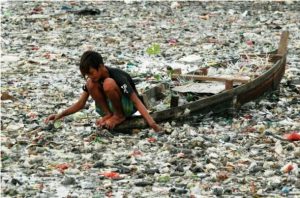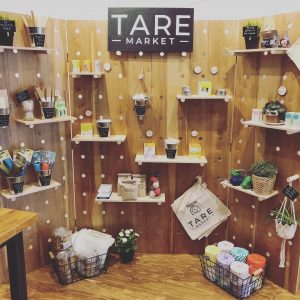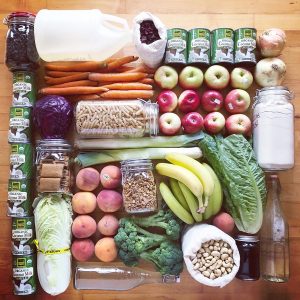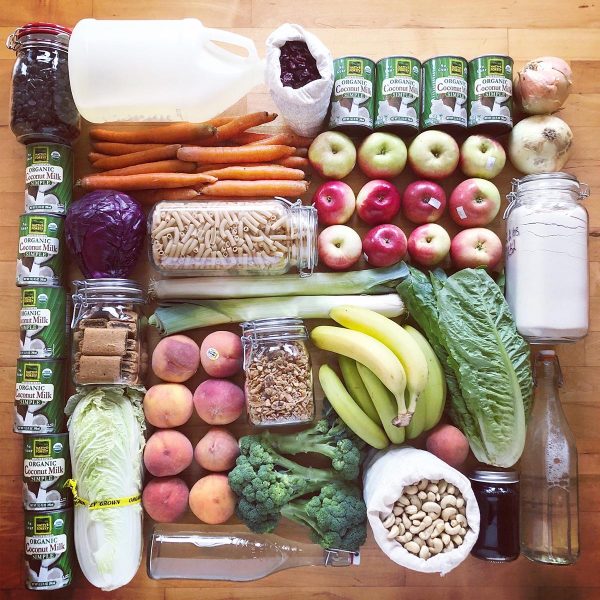Have you heard the phrase “zero waste” before? If not, you’re not alone, but this trash-free movement is quickly gaining traction around the world, thanks to the realization that we are steadily drowning the planet in trash.
Over the past few decades, we have all heard talk about switching to green energy sources, reduction of water use, and ceasing the use of harmful chemicals and pesticides–but what about our trash production?
Until a few years ago, I had never heard of zero waste and never really thought a whole lot about the trash my family was producing, though I considered myself an environmental advocate. After all, we recycled everything we could and we didn’t litter, so what was the problem?
Turns out, there’s a major problem. And the source is our industrialization, overconsumption habits, and disposable, convenience-focused culture.
For instance, did you know that by 2050, scientists project that there will be more plastic in the ocean than fish? Or that we generate 21.5 million tons of food waste each year; and if that food was composted, it would reduce the same amount of greenhouse gases as taking 2 million cars off the road? Or that due to the densely packed, anaerobic environment in landfills, they are the third largest producer of methane gas, a greenhouse gas much more potent than carbon dioxide? Or that Americans make up approximately 5% of the world’s population, but we produce around 40% of the world’s trash?

And even if the environmental repercussions don’t alarm you, think about the fact that today most communities spend more money on waste management than for school books, fire protection, libraries, and parks.
These staggering facts (and many more), were the driving force behind my family’s efforts to reduce our waste, and the subsequent creation of Tare Market by my partners (Amber Haukedahl and Nathan Crymble) and myself.
On our individual journeys to try to reduce our waste output, we realized that there were few local resources that put a focus on the reduction of actual trash and packaging material. And when one third of the average dump is made up of packaging material, it’s clearly a big issue. We also struggled to find many of the items that we wanted to buy in bulk where we could use our own container.
We decided it was up to us to create a zero waste store right here in Minnesota! Tare Market is a place where these resources for package-free goods, bulk foods and liquids, and community education could be convenient and accessible to everyone. We want to protect the planet and make it simple for you to do the same.

Tare Market is currently holding pop-up shops throughout the cities and we plan to open a permanent location in early 2019. Check out our event schedule for more info on our upcoming events, including the Green Gifts Fair!
As part of our endeavor to educate the community on reducing waste, we wanted to share what we feel is the very first thing people can do to begin their transition to a zero waste lifestyle.
One of the most common questions we hear from those wanting to begin reducing their waste is, “Where is the best/easiest place to start?”
The problem with this question is that it will vary greatly by individual/household. If I tell you to begin by not using paper plates, but you rarely or never use them, then that’s not helpful to you. Or if I say the easiest first step is to start bringing tote bags to the grocery store, but you’ve already been doing that for years, then that’s not helpful to you either. There were several easy swaps I saw recommended when I began that didn’t apply to my lifestyle at all, but may have been a great first step for someone else.
So can there really be a best way to start your zero waste journey that will apply to everyone?
Yes! Conduct a trash audit.

A trash audit is where you take stock of how much and what types of household waste you are producing right now in your normal routine.
Since everyone generates different types of trash and lives in different circumstances, there is no single, magical zero waste swap that is the best. By auditing your trash, you’ll be able to see where the bulk of your personal waste comes from and begin to address it in the way that works best for you.
How to Conduct a Trash Audit
Pre-Audit: Learn the Recycling Rules in Your Community (If You Don’t Know Them)
As a very, very first step, make sure you know what can be recycled where you live, and how, and ensure you are doing it correctly. You can call your recycling company or look at their website for guidelines if you are unsure. A trash audit will be less helpful if you’re having to assess things you should be recycling already.
- Change Nothing for One Week
For one week (or less if things become clear pretty quickly), go about your normal routine and take note of what items are making up the majority of your garbage.
- Write it Down
I recommend keeping notes somewhere, whether on paper or on your phone, of the main offenders you’ve noticed accumulating in your trash. I used to be good at keeping mental notes of stuff like that, but after kids, it’s way too easy to forget, so I write it down! Plus, if you need the full week, you probably don’t want to go back on Day 7 and sift through the garbage you produced on Day 1 (yuck!).
- Analyze Your Waste
Do you use a quarter roll of paper towels every day (I promise I’m not judging you if this one applies to you, especially if you have kids!)? Do you eat a lot of pre-packaged foods? Do you accumulate large numbers of plastic and/or paper bags from stores? Assess your trash and pinpoint which areas the majority of it comes from on a weekly basis.
- Make a Change
Pick a waste category you think you can easily tackle first and change it. Maybe you could simply swap those paper towels for reusable rags. Or maybe you already have tote bags you could start bringing with you when you shop. Especially if you’re a beginner, pick something EASY. Making the first steps easy will keep you going in the long run. I also recommend ensuring that the first steps cost you nothing, by using things you already own (like cutting up some old t-shirts to make your reusable rags).
- Make Another Change
After you tackle the first zero waste swap, tackle another one (and another and another)! It gets easier as you go and you will likely find more motivation as you adjust and create better habits.
- Repeat
You’ll probably need to do a trash audit more than once as you go along your zero waste journey (they get much easier and faster as you reduce your trash output). Sometimes trash can start creeping back in even when you think you are being vigilant. Or maybe you’re barely producing trash anymore, but you realize a quarter of it is still coming from something you could easily change. Reassessing every so often will help to keep you in check.
Hopefully auditing your trash gives you a great place to start, but if you get stuck, feel free to drop us a line at taremarketmn@gmail.com and we would be happy to help you with ideas! Or come talk to us at one of our pop-up events–we love talking all things sustainable! You can also follow us on Facebook and Instagram where we share our favorite zero waste tips and tricks.


